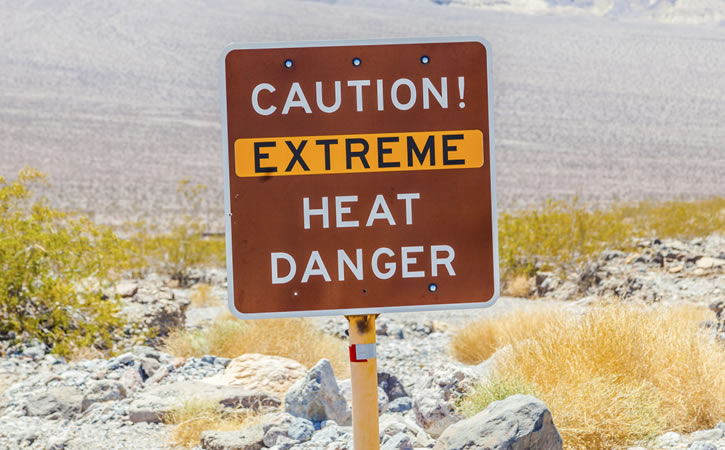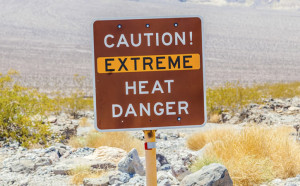
Courtesy of Alexei Prohoroff, Medical Team Leader, University City CERT:
Why: Each year approximately 175 Americans die from extreme heat. In 1995, a heat wave struck Chicago, leading to the deaths of nearly 750 people during a single week. The Chicago heat wave tragically demonstrated that heat and humidity can be a deadly combination. These factors put a lot of stress on the human body and can lead to serious health conditions such as heat exhaustion, heat stroke, or even death.
How: Heat kills by pushing the human body beyond its limits. In extreme heat and high humidity, evaporation is slowed and the body must work extra hard to maintain a normal temperature.
Where: Heat waves have the potential to cover a large area, exposing a high number of people to a hazardous combination of heat and humidity. In fact, heat is typically the leading cause of weather related fatalities each year. High temperatures and humidity are common in numerous locations across the country.
Prevention: Heat-related deaths and illness are preventable yet annually many people succumb to extreme heat. Extreme heat caused 7,415 heat-related deaths in the United States from 1999 to 2010. Extreme heat kills more people than hurricanes, floods, tornadoes and lightning combined, according to the National Weather Service.
Key Safety Tips:
- Drink plenty of water; even if you do not feel thirsty. Avoid drinks with caffeine. Persons who have epilepsy or heart, kidney, or liver disease; are on fluid-restricted diets; or have a problem with fluid retention should consult a doctor before increasing liquid intake.
- Never leave children or pets alone in closed vehicles.
- Take cool showers or baths.
- Check on family, friends, and neighbors who do not have air conditioning and who spend much of their time alone.
- Check on your animals frequently to ensure that they are not suffering from the heat.
- At risk populations: People aged 65 and older; People with chronic medical conditions; Infants and children; People living in urban areas.
- Go to a designated public shelter if your home loses power during periods of extreme heat. Stay on the lowest floor out of the sunshine if air conditioning is not available.
- To find the nearest public shelter:
- Call 211 and ask for the nearest cooling center
- Or log on to www.211sandiego.org/new/
- Select “Search”
- Enter your 5 digit zip code AND scroll to bottom of page and enter “Cooling Centers” in the ‘Search By Keyword’ box; Then select the Search button
Alexei Prohoroff is the Medical Team Leader of University City CERT. To view his complete article, visit Extreme Heat Precautions at https://www.universitycitynews.org/wp-content/uploads/2016/08/Extreme-Heat-Precautions.pdf
Citizens Emergency Response Team (CERT) members are trained to assist first responders in the event of a disaster such as an earthquake or fire. The University City CERT team meets on the first Tuesday of the month at the University Community Library at 4155 Governor Drive. For more information on University City CERT, contact Mike Lawson at mike@mikerlawson.com
To view related posts, visit https://www.universitycitynews.org/category/cert-disaster/



